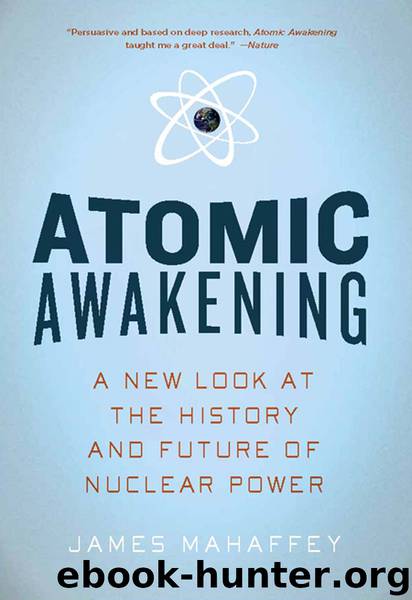Atomic Awakening by James Mahaffey

Author:James Mahaffey
Language: eng
Format: epub
Publisher: W. W. Norton & Company, Inc.
Published: 2010-07-11T16:00:00+00:00
Chapter One
A Quest for Power
At the end of World War II the United States was in the rare position of being the only country to own the Ultimate Weapon, which was both good and bad. It was good in that the Soviet Union, under the much-maligned Joseph Stalin, was unlikely to start a fight in Europe as long as the United States could blow up a city using a single bomb. It was bad in that the secrets of its construction would be impossible to keep. The process of building the Ultimate Weapon was applied physics, and any country with the will, the expertise, and a well developed industrial infrastructure eventually would be able to independently discover the necessary steps. Nuclear physics did not recognize good and evil, and it would reveal itself to any sufficiently clever team of scientists. It was only a matter of time.
In the middle of the Manhattan Project the British became concerned about a lack of cooperation with their dearest ally, the United States. British scientists were allowed to work at Los Alamos and add needed expertise and heavy lifting to the extreme effort being put into the bomb design, but they were not allowed anywhere near production facilities, such as the plutonium-converter reactors at the Hanford Works. The Americans seemed to be getting as much work as they could out of the Brits, while making sure that they would take home a minimum number of secrets. The British Prime Minister, Winston Churchill, managed to convince President Franklin Roosevelt that a clear-cut agreement was needed, under which the two close allies would share all expertise and data concerning the atomic bombs. In Quebec City on August 19, 1943, the Quebec Agreement was formally signed. A major section was entitled “Articles of Agreement governing collaboration between the authorities of the U.S.A. and the UK in the matter of Tube Alloys.” The Canadians, having provided several nuclear physicists to the effort, were included in the information-sharing policy. An extended Quebec Agreement was signed at Hyde Park, New York, on September 18, 1944, pledging full cooperation in military and civilian nuclear pursuits after the war. Roosevelt died on April 12, 1945, and soon after the modified agreement seemed to have been misplaced.152 No foul play was suspected, but it was as if the document had never existed.
The new president, Harry S Truman, saw no need to share anything with anybody concerning the atomic bomb. The British had made recently also a back-door agreement to share things with the French, and this did not please Mr. Truman. By 1946, nobody was happy, and the Brits were on their own. So were the Canadians. In August of 1946 the United States Congress passed the Atomic Energy Act, known as the McMahon Act. It forbade the passing of secret atomic energy information to any foreign country, including Britain or Canada, on pain of death.
The Soviets were certainly never part of any information-sharing agreement, and although they were technically allies during the war, they were purposefully kept out of the bomb-development loop.
Download
This site does not store any files on its server. We only index and link to content provided by other sites. Please contact the content providers to delete copyright contents if any and email us, we'll remove relevant links or contents immediately.
Enlightenment Now: The Case for Reason, Science, Humanism, and Progress by Steven Pinker(7300)
A Journey Through Charms and Defence Against the Dark Arts (Harry Potter: A Journey Through…) by Pottermore Publishing(4795)
The Immortal Life of Henrietta Lacks by Rebecca Skloot(4569)
A Journey Through Divination and Astronomy by Publishing Pottermore(4372)
Elon Musk by Ashlee Vance(4114)
Origin Story: A Big History of Everything by David Christian(3679)
COSMOS by Carl Sagan(3612)
Alchemy and Alchemists by C. J. S. Thompson(3506)
Bad Pharma by Ben Goldacre(3414)
Enlightenment Now by Steven Pinker(3363)
Shadow of Night by Deborah Harkness(3346)
Inferior by Angela Saini(3303)
A Mind For Numbers: How to Excel at Math and Science (Even If You Flunked Algebra) by Barbara Oakley(3290)
Origin Story by David Christian(3190)
The Code Book by Simon Singh(3165)
Signature in the Cell: DNA and the Evidence for Intelligent Design by Stephen C. Meyer(3121)
The Elements by Theodore Gray(3045)
A Brief History of Time by Stephen Hawking(3013)
A Journey Through Potions and Herbology (A Journey Through…) by Pottermore Publishing(2843)
